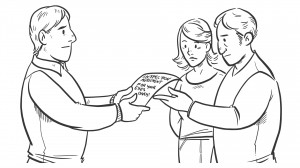The Importance of Home Inspector E&O Insurance
I am continuously surprised at the number of inspectors who do not carry professional liability insurance or, as it is popularly known, Errors and Omissions Insurance for home inspectors (“E&O”). When I ask inspectors who attend my home inspector training at the Law and Disorder seminar whether or not they carry E & O insurance, between 40 and 60 percent of them say that they do not. That number is constantly diminishing, however, as more and more jurisdictions have introduced laws requiring that home inspectors become licensed and have made the carrying of E&O insurance a condition of licensure.Some inspectors who do not carry E&O would, perhaps, like to carry it but simply do not conduct enough inspections to be able to afford it. Those inspectors generally leave the profession when carrying professional liability insurance becomes a condition of having a license.
Many others do not carry it because they think that it is “too expensive” and/or that it “paints a target on your back” – that is, it makes you more likely to be sued than if you had no insurance.
Whether or not a given product is “too expensive” is something that individual consumers have to determine for themselves after conducting a cost-benefit analysis and considering competing products.
(more…)

 Sellers are encouraged to obtain home inspections prior to listing their house for sale.
Sellers are encouraged to obtain home inspections prior to listing their house for sale.